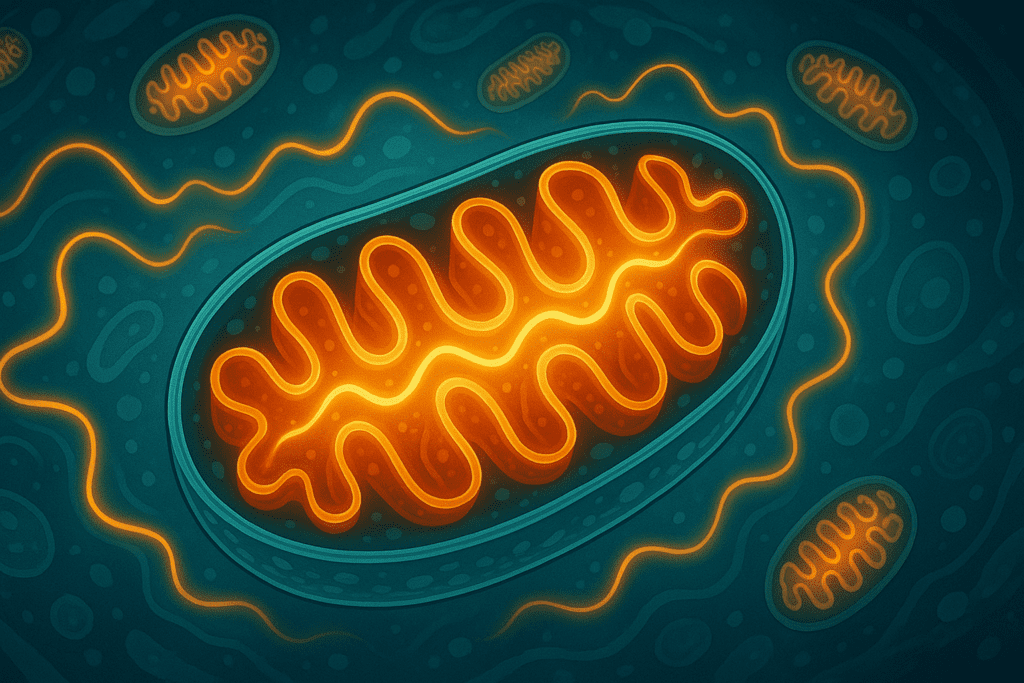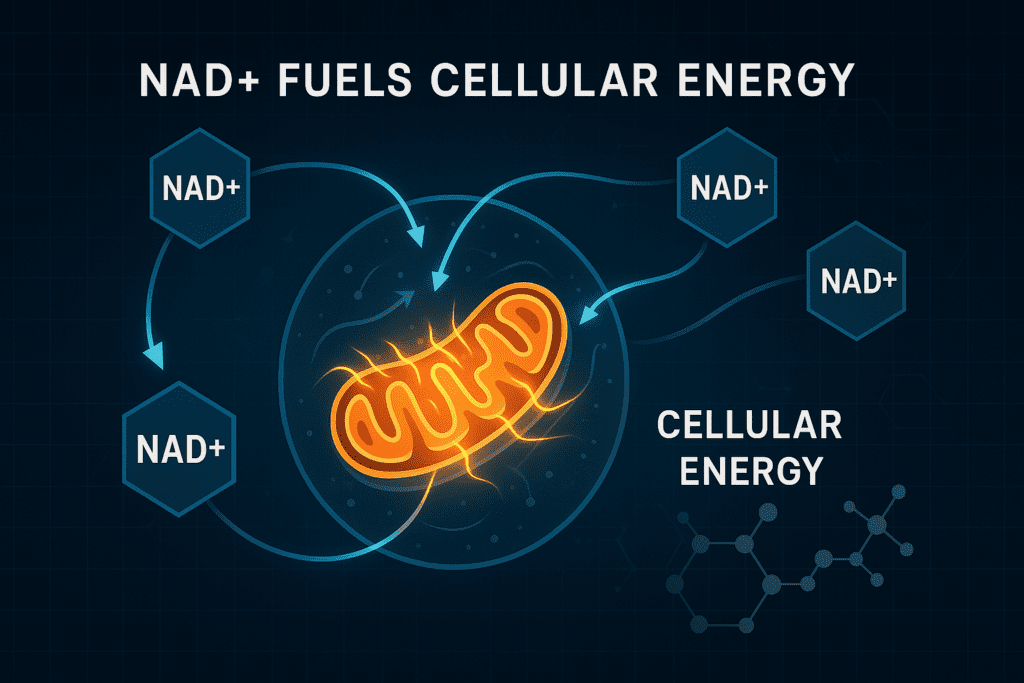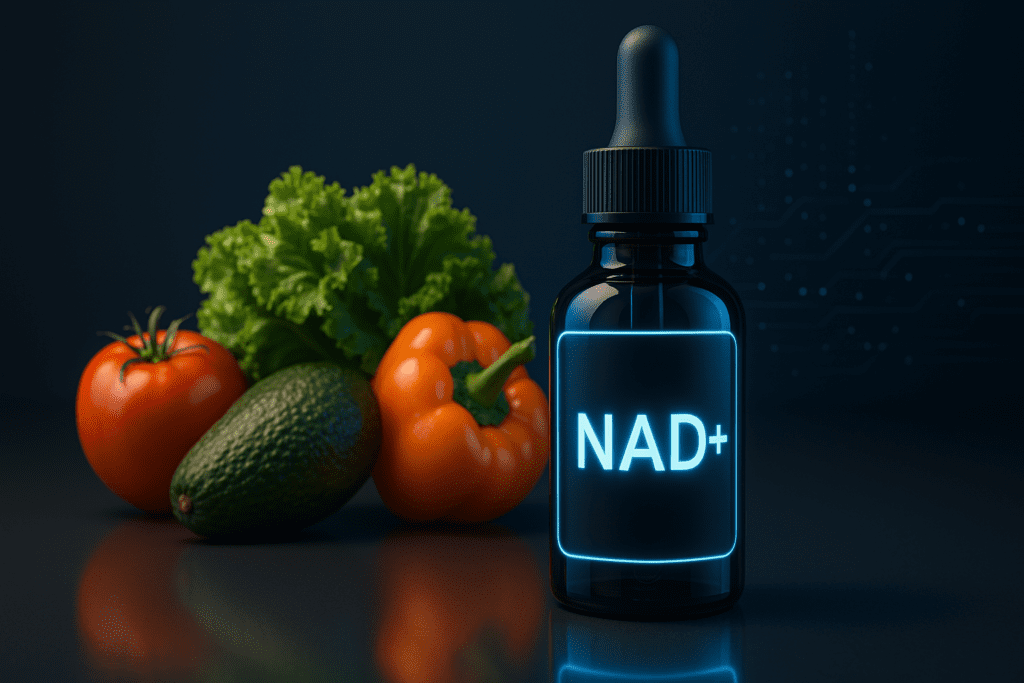The Key to Longevity: One Essential Nutrient for Metabolic Flexibility and Mitochondrial Health
Why Longevity Starts in Your Cells
What if the secret to living longer isn’t just about eating well or exercising, but about optimizing how your cells produce energy? Emerging research reveals that metabolic flexibility—the body’s ability to switch seamlessly between fuel sources—and robust mitochondrial health are foundational to longevity. At the heart of this process lies one essential nutrient: NAD+ (nicotinamide adenine dinucleotide).

What Is Metabolic Flexibility?
Metabolic flexibility allows your body to efficiently burn carbohydrates, fats, or even proteins for energy, depending on availability and demand. Think of it as your metabolism’s “adaptability quotient.” When this system works well, you maintain stable energy levels, avoid fat storage spikes, and reduce oxidative stress. Poor metabolic flexibility, however, is linked to insulin resistance, fatigue, and age-related decline.
The Role of Mitochondria in Aging
Your mitochondria—often called cellular powerhouses—generate ATP (energy) and regulate everything from immune responses to cell death. Over time, mitochondrial damage accumulates due to free radicals, poor diet, and sedentary habits. This wear and tear directly impacts aging, making mitochondrial protection a cornerstone of longevity.

NAD+: The Unsung Hero of Cellular Energy
NAD+ is a coenzyme that declines with age, dropping by up to 50% by middle age. It’s critical for:
– Fueling metabolic pathways that convert food into energy.
– Activating sirtuins, proteins that repair DNA and slow cellular aging.
– Enhancing mitochondrial function, ensuring efficient ATP production.
Without adequate NAD+, your cells struggle to adapt to energy demands, accelerating metabolic rigidity and age-related diseases.

How to Boost NAD+ Naturally
While NAD+ isn’t found in food, its precursors are:
– Vitamin B3-rich foods: Turkey, salmon, peanuts, and mushrooms.
– Tryptophan sources: Eggs, spirulina, and chia seeds.
– Supplements: Nicotinamide riboside (NR) and nicotinamide mononucleotide (NMN) are clinically proven to elevate NAD+ levels.

The Longevity Payoff: NAD+ in Action
Studies show that restoring NAD+ levels can:
– Improve muscle endurance and cognitive function.
– Reduce inflammation linked to heart disease and Alzheimer’s.
– Extend healthspan in animal models by up to 30%.
Daily Habits to Support Mitochondrial Health
Pair NAD+ optimization with these practices:
– High-intensity interval training (HIIT): Sparks mitochondrial growth.
– Intermittent fasting: Enhances metabolic flexibility.
– Sleep 7–9 hours nightly: Critical for cellular repair and NAD+ recycling.
Final Thought
Longevity isn’t just about adding years to life—it’s about adding life to years. By prioritizing **NAD+ support**, metabolic flexibility, and mitochondrial care, you empower your cells to thrive, adapt, and resist the wear of time.



